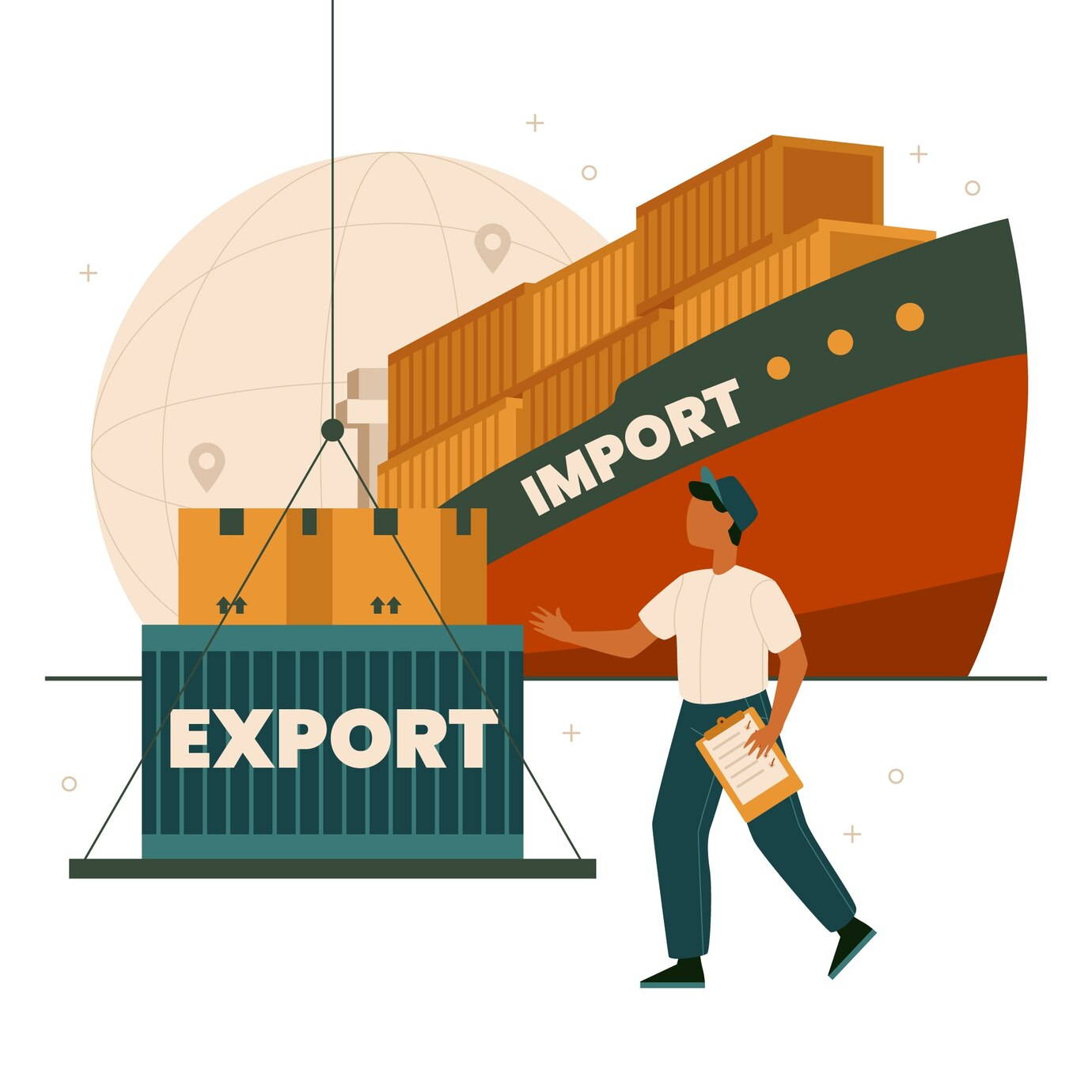
Key Documents Required for a Successful Import Business in India
“🔑🇮🇳 Discover the essential documents for a successful import business in India! Guide your business hustle smoothly. #ImportBusiness 💼🌐”
India’s import business plays a crucial role in its economy, facilitating the acquisition of essential goods and services. The country relies on international trade to obtain technology, machinery, and raw materials, fostering industrial growth while addressing domestic demand for various commodities through diverse sourcing channels. Click the link for more information: https://www.dhl.com/discover/en-in/ship-with-dhl/import-with-dhl/required-import-documents
Importance of understanding and preparing necessary documents for successful operation.
Comprehending and organising essential documents is crucial for ensuring smooth operations. Proper documentation mitigates risks, streamlines processes, and enhances communication. By prioritising this preparation, individuals and organisations can better navigate challenges, maintain compliance, and ultimately drive successful outcomes in their respective endeavours.
Legal Requirements for Initiating an Import Business
Requirement of obtaining an Importer Exporter Code (IEC).
To engage in international trade, obtaining an Importer Exporter Code (IEC) is essential. This unique identifier facilitates customs clearance for imports and exports, ensures compliance with legal regulations, and enables businesses to open foreign bank accounts necessary for cross-border transactions.
Registration under the state’s sales tax department.
To comply with state regulations, businesses must register with the sales tax department. This process ensures proper collection and remittance of sales taxes when selling products or services. Registration not only legitimizes a business’s operations but also helps avoid potential legal complications.
Registration under the Companies Act, 2013.
The Companies Act, 2013, mandates the registration process for companies in India. This procedure ensures legal recognition, facilitating compliance with statutory requirements. It involves submitting necessary documents and obtaining a Certificate of Incorporation, which permits the company to operate legally within the country.
Key documents for Import Transactions
Trade Agreement: Explanation on how they affect importation.
Trade agreements establish rules and tariffs that govern international commerce, influencing the cost of imports. By reducing or eliminating tariffs, these accords facilitate smoother importation processes and encourage trade between nations, ultimately impacting consumer prices and market competition within participating countries.
Bill of Lading: Description and significance.
A Bill of Lading is a crucial shipping document that serves as a contract between the shipper and carrier, detailing goods’ specifics, quantity, and destination. It plays an essential role in freight logistics by providing proof of shipment and ownership transfer during transit.
Commercial Invoice: Details it must contain and its importance.
A commercial invoice must include essential information such as the seller’s and buyer’s details, item descriptions, quantities, prices, payment terms, currency, and shipping information. This document is crucial for customs clearance and serves as proof of sale between parties in international trade.
Inspection Certification: Need for product quality compliance.
Inspection certification is essential for ensuring that products meet established quality standards. This process verifies compliance with regulatory requirements and industry norms, enhancing consumer safety. By certifying inspections, manufacturers demonstrate their commitment to delivering high-quality goods that satisfy both legal obligations and customer expectations.
Import License: Detailed process for getting an import license in India.
Acquiring an import license in India involves several steps, including obtaining a Registration-cum-Membership Certificate from relevant trade bodies, applying through the Director General of Foreign Trade (DGFT), fulfilling eligibility criteria, submitting necessary documents, and adhering to guidelines. This process ensures compliance with regulatory standards.
Customs Clearance Documents
Packing List: Details it must contain.
A comprehensive packing list should include essential categories such as clothing, toiletries, electronics, travel documents, and emergency supplies. Additionally, personal items relevant to the trip’s activities and location must be considered. Always tailor your list based on destination and duration for optimal preparedness.
Bill of Entry: Importance in the import business.
A Bill of Entry is a crucial document in the import business, serving as a formal declaration for goods entering a country. It facilitates customs clearance, ensures compliance with regulations, accurately assesses duties and taxes, and records essential information for inventory management and trade statistics.
Import Duty Receipt: Explanation on this fiscal responsibility.
An Import Duty Receipt is a crucial document evidencing the payment of taxes on imported goods. It signifies compliance with fiscal responsibilities and ensures that revenue generated from imports supports national development, infrastructure, and public services while regulating foreign trade practices effectively.
Certificate of Origin: Information on its procurement and importance.
A Certificate of Origin is a vital document obtained from relevant authorities, confirming the country where the goods were produced. It plays a crucial role in international trade by facilitating customs clearance, determining tariffs, and ensuring compliance with trade regulations between exporting and importing nations.
Special Documents Based on Type of Goods
Animal and Animal Products: Special permissions and certificates required.
Special permissions and certifications are mandatory for the import and export of animals and animal products. These regulations ensure health standards, safety protocols, and compliance with international laws, thereby safeguarding against diseases. Proper documentation is essential for legitimate trade in these goods.
Food and Agricultural Produce: Details on FSSAI approval and compliant labelling.
Food and agricultural products must adhere to FSSAI regulations, ensuring safety and quality. Compliance involves obtaining necessary approvals and displaying proper labelling that conveys essential information to consumers. This guarantees transparency and fosters trust in the food supply chain while promoting public health standards.
Pharmaceuticals: Compliance certificate requirement from the Central Drugs Standard Control Organisation.
The Central Drugs Standard Control Organisation mandates a compliance certificate for pharmaceuticals, ensuring that all products meet established safety and quality standards. This requirement safeguards public health by regulating the manufacturing processes and maintaining oversight within the pharmaceutical industry throughout India.
Electronics and IT Products: Necessary BIS certificate and license from the Department of Electronics.
Electronics and IT products require a mandatory BIS certification and licensing from the Department of Electronics. This process ensures that the items meet safety standards, quality benchmarks, and regulatory compliance, ultimately protecting consumer interests while promoting reliable technology manufacturing practices within the industry.
FAQs
What are the requirements for import in India?
To import goods into India, one must adhere to specific requirements, such as obtaining an Importer Exporter Code (IEC), ensuring compliance with customs regulations, paying applicable duties and taxes, adhering to safety and quality standards, and securing necessary permits for restricted or prohibited items.
What are the documents required for import customs clearance in India?
To clear customs for imports in India, essential documents include the Bill of Entry, commercial invoice, packing list, import license (if required), shipping bill or airway bill, certificate of origin, and necessary permits related to restricted goods. Compliance ensures smooth processing.
What documentation is required for imports?
When importing goods, several essential documents are necessary. These typically include a bill of lading, commercial invoice, packing list, import permits or licenses, and customs declarations. Compliance with regulations ensures smooth customs clearance and helps avoid potential delays or penalties during the import process.
How to import goods from the USA to India?
To import goods from the USA to India, first research regulations and tariffs. Next, identify reliable suppliers and negotiate terms. Arrange shipping through a freight forwarder, complete necessary documentation like invoices and bills of lading, and ensure compliance with Indian customs requirements for smooth delivery.




